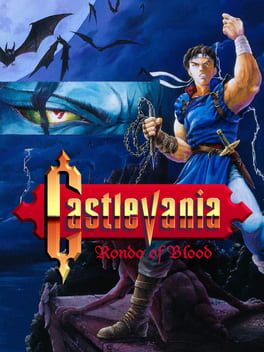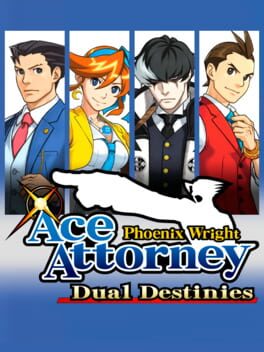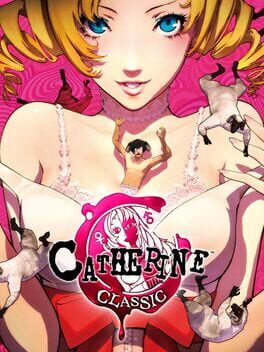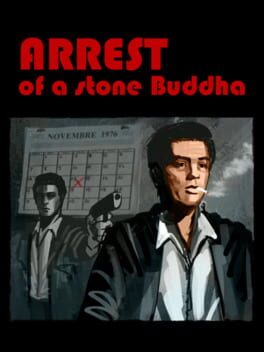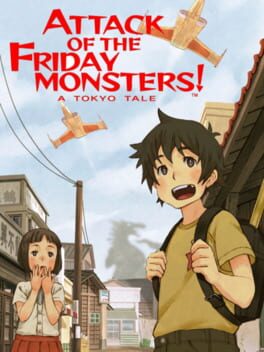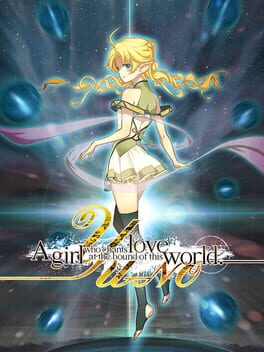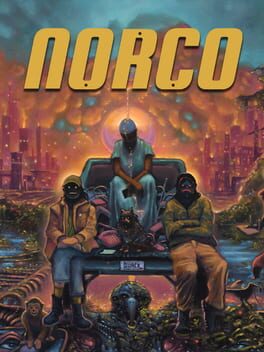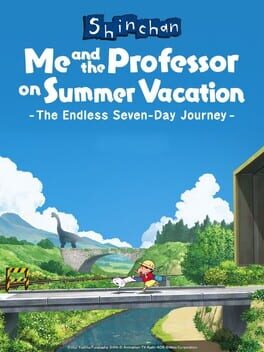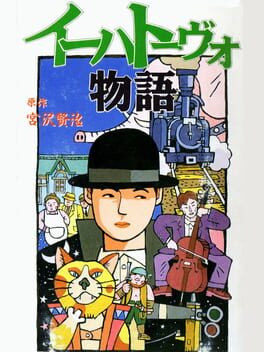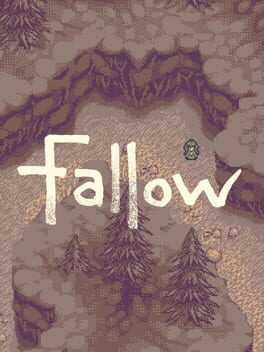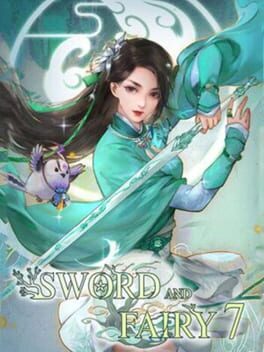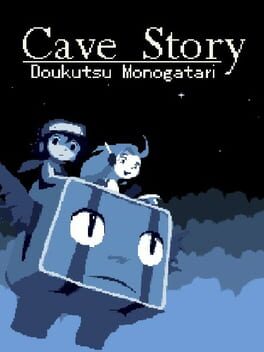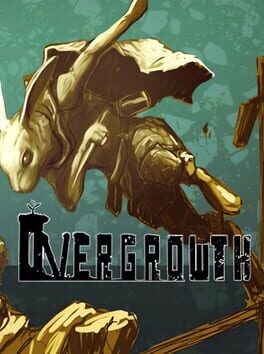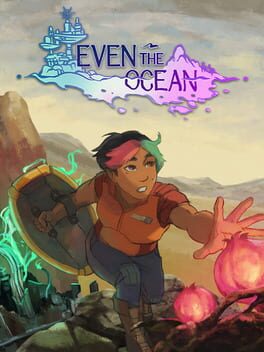wingXblade
2022
Absolutely phenomenal and hysterical shmup. Extremely kind but never pulling punches, Nekotosakana is one of the most delightful shooting game I've ever played. Everything about the game is deeply sincere without tipping into the self-serious. The keyboard control take on the twin stick has changed my perspective on the possibility space for twin sticks. This game escalates nicely without being overwhelming to a new shmup player or being dull to an experienced player. A behemoth of a game.
A dramatic pivot in Castlevania to something more about fast jumps and rooms with many puzzle like approaches rather than turtling and attrition. Much kinder than classic-vania but more demanding in terms of control than modern-vanias. The solution and rhythm of rooms are designed to express a grand scale that crumbles before you after some perseverance and careful footwork. The game then just fucking implodes when you unlock Maria and get a double jump in a turn that's almost as transformative as the infamous castle flip in Rondo's sequel. The Dracula fight is really boring but doesn't undercut how delightful and empowering it is to master the game enough for your first clear.
This is a very bad Ace Attorney game that's loops back around to being very funny for me. There's a massive loss in tone, style, and character identity that is felt with the lack of Shu Takumi on staff, but the breeziness of the trials and the sheer amount of anime bullshit they cram in here won me over. I hate how streamlined investigations are and it's sad that most of Apollo Justice is basically scrapped, but they added a ESPer Scrappy-doo girl, turned Apollo into a Yamato reference somehow, and threw in an evil version of Phoenix that lectures him about hope and despair. They very poorly try to copy-paste the slow Trials and Tribulations build up (again!), but I could not take this shit seriously if I tried and I seemed to have had a better time with it than most because of it. Now if you'll excuse me, I'm gonna go eat the fuck out of the DLC where you defend an orca in court.
2019
CWs for Arrest of a Stone Buddah: sui*, breaking bones, execution by gun, dismemberment
This is a game that has a very clear vision that I understand and appreciate the aims of. This is a French new wave homage piece that tries to lean into the misery of an armed assassin. The action missions are a plodding mechanical affair where you simply count your bullets and move slowly to succeed in mowing down hundreds of endless dudes in your escape. Between work, you live your day-to-day life in Paris either getting a drink, seeing the woman who passes out like a rock after your fuck, and watching what seems to be the same movie airing 24/7 at a nearby theater.
This game lands the cinematic register of it's touchstones and then drops it. I get exactly what I would get out of the film version of this game, all the way up to it's abrupt and unceremonious conclusion. There is a strong commitment to the duration and plainness of the entire affair, but this is fundamentally not what video games are suited for. To have truly nothing shift over the course of a game double the length of a long film feels like a waste of the medium. I think there's better general system of nothing changing that could have been deployed, a more specific system of violence, or some combination of the two, to land the same misery but in a way which is expansive and suited to the medium. I think Yeo's sense of narrative design is some of the best in the industry for it's willingness to be loose and unceremonious and I really wish there was an iteration of this game that let the ideas here stew instead of rot.
This is a game that has a very clear vision that I understand and appreciate the aims of. This is a French new wave homage piece that tries to lean into the misery of an armed assassin. The action missions are a plodding mechanical affair where you simply count your bullets and move slowly to succeed in mowing down hundreds of endless dudes in your escape. Between work, you live your day-to-day life in Paris either getting a drink, seeing the woman who passes out like a rock after your fuck, and watching what seems to be the same movie airing 24/7 at a nearby theater.
This game lands the cinematic register of it's touchstones and then drops it. I get exactly what I would get out of the film version of this game, all the way up to it's abrupt and unceremonious conclusion. There is a strong commitment to the duration and plainness of the entire affair, but this is fundamentally not what video games are suited for. To have truly nothing shift over the course of a game double the length of a long film feels like a waste of the medium. I think there's better general system of nothing changing that could have been deployed, a more specific system of violence, or some combination of the two, to land the same misery but in a way which is expansive and suited to the medium. I think Yeo's sense of narrative design is some of the best in the industry for it's willingness to be loose and unceremonious and I really wish there was an iteration of this game that let the ideas here stew instead of rot.
CWs for YU-NO: A Girl Who Chants Love at the Bounds of this World: incest, sui*, sexual assault falling from great heights, starvation, student-teacher abuse, mind control, child abuse,
Both some of the most exciting and most misfortunate adventure gaming I've ever done. The way this game let's you freely control time travel for the sake of solving adventure game puzzles is intensely demanding (thank you MAGES hint system) but produces extremely satisfying adventure game a-ha moments. You are constantly in the dark even when the right item is found, a new path is made, of some silly sci-fi proper noun is given to you. Nothing in other flowchart routed games compares to the freeform zipping around you get here.
Even with the eroge cut out in the MAGES remake, the cool ass time travel stuff if constantly getting overshadowed by the magnitude of pointless sexual fantasy and taboo shit driving nearly all of the character relations. By the end, only one route leads to a non-incest and non-age gap love interest. It sucks, it's boring and doesn't produce a cohesive thought about taboo or incest. What's worse is that the game strips away the time travel and really any adventure game elements in the last 6-8h when it pivots to strict fantasy to decay anything likeable about the perspective character and to introduce the silliest incest plot of all time. I love the opening of this game and it's fun to trace the rest of adventure games and visual novels through here, but the problems here frequent and unavoidable.
Both some of the most exciting and most misfortunate adventure gaming I've ever done. The way this game let's you freely control time travel for the sake of solving adventure game puzzles is intensely demanding (thank you MAGES hint system) but produces extremely satisfying adventure game a-ha moments. You are constantly in the dark even when the right item is found, a new path is made, of some silly sci-fi proper noun is given to you. Nothing in other flowchart routed games compares to the freeform zipping around you get here.
Even with the eroge cut out in the MAGES remake, the cool ass time travel stuff if constantly getting overshadowed by the magnitude of pointless sexual fantasy and taboo shit driving nearly all of the character relations. By the end, only one route leads to a non-incest and non-age gap love interest. It sucks, it's boring and doesn't produce a cohesive thought about taboo or incest. What's worse is that the game strips away the time travel and really any adventure game elements in the last 6-8h when it pivots to strict fantasy to decay anything likeable about the perspective character and to introduce the silliest incest plot of all time. I love the opening of this game and it's fun to trace the rest of adventure games and visual novels through here, but the problems here frequent and unavoidable.
2022
A casualty of scope creep, NORCO consists of many methodical and haunting tone pieces and prose paintings that sparsely link well or command time effectively. I really enjoy the narrator writing, the broader strokes of mood, and the qualities of southern Louisiana and New Orleans brought forth, but the adventure game plotting doesn't give space to breathe or reflect in the way that I'd like. Combat feels tacked on and so removed from violence that the larger set pieces become the least exciting.
The most fun I had was zipping around the swamp to different text entries, just kind of getting washed over. I wish the more game-y parts were slower and less desperate to feel like a puzzle or to throw a bunch of character gags that felt out of place with the reflective narration. NORCO is quite fun and I'm happy it exists, but it's a little confused on its own identity and the kinds of politicized and class constructions it wants to discuss.
The most fun I had was zipping around the swamp to different text entries, just kind of getting washed over. I wish the more game-y parts were slower and less desperate to feel like a puzzle or to throw a bunch of character gags that felt out of place with the reflective narration. NORCO is quite fun and I'm happy it exists, but it's a little confused on its own identity and the kinds of politicized and class constructions it wants to discuss.
Essentially the first Millenium Kitchen to reach English speaking audiences. The sense of scale and the feeling of being slight in a large world is accomplished in expertful ways with just a basketful of fixed camera locations and mini-games. Momentary bursts of music amid the field sounds of the small rural town melt into my actual summer soundscape (a boon for this game to come out right at the end of summer). The Millenium Kitchen formula is deployed here to activate you in the story book and in your own memories of the summer.
I really enjoyed my the with this game, but I also can't help but feel it's a dramatically sanded down thing. I've only played Attack of the Friday Monsters and this game has this weird intersection of that game with BokuNatsu. I don't think the collectables menu and episode system land very well with me here. We also get this very middle of the road collection of potato chip character stories that don't really hit the kind of intrigue and gravity that I know BokuNatsu approaches constantly. Not unrelated: extremely weird that the Cap (+40y/o) and Yoshiko (18) romance shit is played off seriously!
It's strange that we get this reserved kiddy thing with Shin-chan of all franchises. Shin-chan's bit of being the spawn of Satan while also just being a reflection of bad adults and culture is just not used at all in favor of making him barely present. I'm happy to get a full length Millenium Kitchen game and generally recommend this game, but if you're aware of the culture around any of the franchises that hang over this release, be aware that you're getting this late, albeit extremely effective, afterimage of them all.
I really enjoyed my the with this game, but I also can't help but feel it's a dramatically sanded down thing. I've only played Attack of the Friday Monsters and this game has this weird intersection of that game with BokuNatsu. I don't think the collectables menu and episode system land very well with me here. We also get this very middle of the road collection of potato chip character stories that don't really hit the kind of intrigue and gravity that I know BokuNatsu approaches constantly. Not unrelated: extremely weird that the Cap (+40y/o) and Yoshiko (18) romance shit is played off seriously!
It's strange that we get this reserved kiddy thing with Shin-chan of all franchises. Shin-chan's bit of being the spawn of Satan while also just being a reflection of bad adults and culture is just not used at all in favor of making him barely present. I'm happy to get a full length Millenium Kitchen game and generally recommend this game, but if you're aware of the culture around any of the franchises that hang over this release, be aware that you're getting this late, albeit extremely effective, afterimage of them all.
1993
Beautiful and methodical pseudo-fanfiction about the works of Kenji Miyazawa and really more about his legacy in culture. There's a big element of this game absolutely not having the same takeaway about Miyazawa's works, especially in the way this game thinks of the Galactic Railroad, but it is making delicate and future-looking moves with the adventure game formula that grip the RPG Maker community to this day that make it real easy to not get so hung up on that. Ihatovo Monogatari imposes a quest to chase down a fleeting mythical figure against the daily mundanity of the downtrodden workers, farmers, peasants, and youth. While you float through fantastical moments, life moves on: the young family moves south for the winter, the scorned worker is chased out of town suddenly, the boy you helped out last week died of a fever off screen. The things you chase in life can only amount to the character of your actions that get you there. Live wisely, fiercely, and kindly to struggle along side those who surround you.
2021
A game so painfully intimate that it often feels like the screen is bleeding, despite the complete lack of blood. Fallow is a reserved but maximalist RPG Maker adventure game with a very precise sense of time and mourning. Fallow compels you to move and look in claustrophobic ways; it drags your eyes across the digital mud and tries to pull your lids down to cry. Looking and searching for the path forward is such an intense and often discouraging experience, pulling you into a death throes of a world decaying along with our perspective character.
I don't really mesh with the world view here or the relationship to suicidal ideation deeply enmeshed in this game because of where I'm at in life. I also don't like a lot of the prose for the kinds of post-modern and psychoanalytic influence, but those are very narrow points of a much more gestural whole that I really really love for all its unresolved and unabashed misery.
I don't really mesh with the world view here or the relationship to suicidal ideation deeply enmeshed in this game because of where I'm at in life. I also don't like a lot of the prose for the kinds of post-modern and psychoanalytic influence, but those are very narrow points of a much more gestural whole that I really really love for all its unresolved and unabashed misery.
CNs for Sword and Fairy 7: child abuse, sexual harassment.
Going directly from Sword and Fairy 1 directly to 7 was a surprising and painless switch. The gigantic xianxia franchise has a massive mythology that raises its flags for if you want to follow it that way, but best operates in continuing to make you feel small. Despite the lore entries and the tiny nods, Sword and Fairy 7 holds a candle for the bewildering and naturalistic fantasy drama that put the franchise on the map which swells into its own blaze.
At a glance, 7 feels like it it's trying to ride Final Fantasy's shift to the ARPG but takes immediate steps to dispel this in its opening. Set pieces are grand in feel but modest in scale, weaving you through space with side and main quest tasks that activate the local culture and society, not unlike Shenmue's more lock-and-key moments. Your party assembles early through the bureaucracy of the magical sects or seeming coincidence, but sticks together with dynamic relationships to one another as well as to the growing cast of villains. Sword and Fairy 7 delivers one of the best ensemble casts I've ever experienced in games, with no one feeling that much more important than the others.
Combat leans more towards a classic action game or Musou feel that prefers you know where to stand and how to use your character over twitchy character action play, handing you carefully assembled encounters which deliver or reinforce strong narrative beats. I have a lot of affection for this game which lets every character shine in their pulpy on-genre beats, but it also must be said that this translation is worse than some machine fan translations I've played. If you're played to this kind of translation, the game will still shine through that and it's potentially dogshit load-in times. I hope for more from Sofstar in English and to see their care for drama blossom into other games.
Going directly from Sword and Fairy 1 directly to 7 was a surprising and painless switch. The gigantic xianxia franchise has a massive mythology that raises its flags for if you want to follow it that way, but best operates in continuing to make you feel small. Despite the lore entries and the tiny nods, Sword and Fairy 7 holds a candle for the bewildering and naturalistic fantasy drama that put the franchise on the map which swells into its own blaze.
At a glance, 7 feels like it it's trying to ride Final Fantasy's shift to the ARPG but takes immediate steps to dispel this in its opening. Set pieces are grand in feel but modest in scale, weaving you through space with side and main quest tasks that activate the local culture and society, not unlike Shenmue's more lock-and-key moments. Your party assembles early through the bureaucracy of the magical sects or seeming coincidence, but sticks together with dynamic relationships to one another as well as to the growing cast of villains. Sword and Fairy 7 delivers one of the best ensemble casts I've ever experienced in games, with no one feeling that much more important than the others.
Combat leans more towards a classic action game or Musou feel that prefers you know where to stand and how to use your character over twitchy character action play, handing you carefully assembled encounters which deliver or reinforce strong narrative beats. I have a lot of affection for this game which lets every character shine in their pulpy on-genre beats, but it also must be said that this translation is worse than some machine fan translations I've played. If you're played to this kind of translation, the game will still shine through that and it's potentially dogshit load-in times. I hope for more from Sofstar in English and to see their care for drama blossom into other games.
2004
With one of the most divisive jumps in games, Cave Story is a stage based run and jump affair. This game up and down constantly because of uneven level design and weird permanent changes to playstyle that are simple to stumble upon your fist time around. Regardless, it's an absolute odyssey orbiting rebirth and atonements that can occur when you struggle against a difficult task.
2017
CWs for Overgrowth: graphic animal death, blood, falling from great heights, depictions of pre-feudal slavery
I am aware of this game's development cycle and would like to speak charitably about it, but Overgrowth is a game where I continuously struggle to find such a through-line. There is an interesting FFXV-like action game input system that is robbed of any chance to shine through a lack encounters or AI which elaborate on it in any capacity. Very few platforming pieces complement the movement tools you have and when they do it, they're just achieving what a platformer should do in it's first few levels anyway (teaching you your jump max distance, height, stopping short, etc). The mode of aesthetics in art and writing here is both needlessly chaste and purposelessly cruel, as you get slammed by paper thin characters and unbelievable fantasy slavery. More than anything, this game feels like a cautionary tale on why programming is secondary to overall game design as Overgrowth fails to command even the gravity of a tech demo.
I am aware of this game's development cycle and would like to speak charitably about it, but Overgrowth is a game where I continuously struggle to find such a through-line. There is an interesting FFXV-like action game input system that is robbed of any chance to shine through a lack encounters or AI which elaborate on it in any capacity. Very few platforming pieces complement the movement tools you have and when they do it, they're just achieving what a platformer should do in it's first few levels anyway (teaching you your jump max distance, height, stopping short, etc). The mode of aesthetics in art and writing here is both needlessly chaste and purposelessly cruel, as you get slammed by paper thin characters and unbelievable fantasy slavery. More than anything, this game feels like a cautionary tale on why programming is secondary to overall game design as Overgrowth fails to command even the gravity of a tech demo.
2016
A flagship to all those games that want to talk about work outside the sim genre, Even the Ocean is a methodical puzzle-platformer essay on how the mundane and crisis moments of the individual and society shape one another. Fantasy electrician labor is made into an independent state Uber model (why is every indie game about labor like this), your coworker dies gruesomely the first day on the job, and you persist against all odds. Aliph has a loose metropolitan society and no proper coworkers to inform how they should react to being left for dead and silently accepts the hero's accolades along with being wrung out for more deadly work outside the job description. I really dislike the moments trying to bespoke about its fantasy elements because obviously I know that Shinra is evil and that I should not destroy the giant stone wardens of the planet, but our hero-electrician's plain acceptance of the clearly evil work is a really great vehicle for refrained the disaster tourism of video game levels. The game is functionally paced by having to clock in and out of work before levels. Along with a little breakfast stand that dots the way to work, a very small touch is all Even the Ocean needs to pull out mixed drudgery of life with wage labor. The NPCs speak as if they've been gutted of something precious at a spiritual and social level while the fantastical elements of the world are trying to yank a hero does not exist within Aliph. I'm pretty down on the narrative and thematic bow tying that gets dropped suddenly at the end, but I generally enjoy the way the game culminates and the sensations delivers on the way there.

